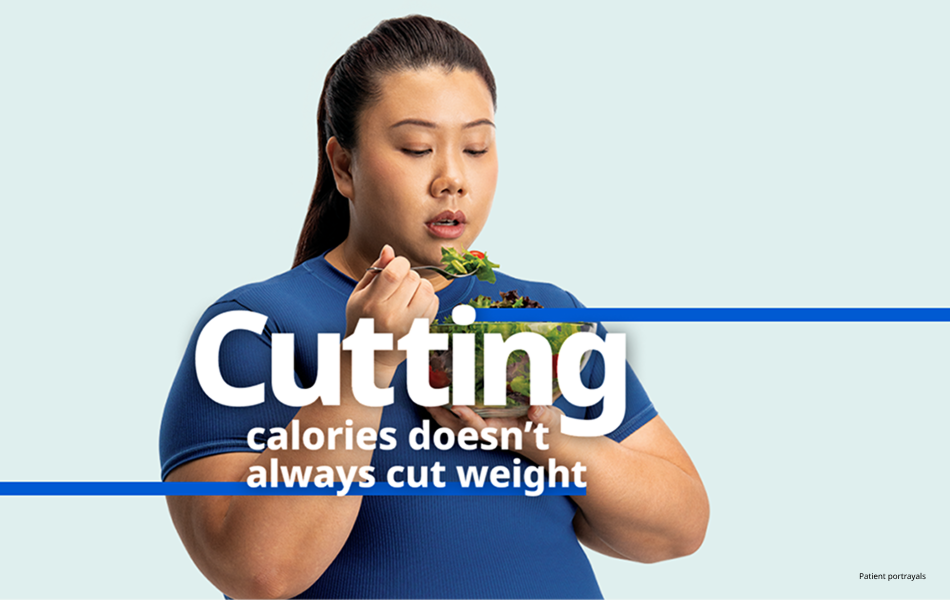
Partner with your doctor for an obesity management programme
Obesity is a complex disease but treating it does not have to be. Trained healthcare providers have the knowledge and tools to create a treatment plan that works for you.
Although obesity is a chronic disease1, there are many misunderstandings surrounding it. Let’s go beyond the myths and learn the facts, so we can better understand this complex disease, treat it more effectively and help prevent complications like high blood pressure and heart disease.

Fact: While it’s true that lack of exercise and poor dietary habits can contribute to weight gain, obesity is much more complicated. It’s a disease caused by complex interplay of different biological, genetic, psychological, social and environmental factors.1 Some people struggle to lose weight due to hormonal imbalances, which can cause them to continue feeling hungry even after eating sufficient food.2
Fact: While a proper diet and regular exercise are important for weight loss, sometimes they are not enough. Less than 10% of people maintain a 5% weight loss after five years due to biological and environmental factors.3 Therefore, addressing obesity requires a personalised, multifaceted approach, not just calorie counting or gym memberships.

Fact: Weight loss is often recommended to improve overall health, but rapid or excessive weight loss can increase the possibility of risks such as nutritional deficiency. The appropriate short-term treatment goals are an initial 5 to 10% weight loss over six months. Realistic weight loss should be safe and preferably not exceed 0.5 to 1 kg a week. This not only helps to reduce blood pressure and cholesterol but also create a sustainable approach to lose weight and avoid weight regain.4
Fact: While BMI is a useful starting point, it doesn’t always give you a correct picture of your chances of developing heart diseases or diabetes. It’s better to measure your waist circumference or waist-to-height ratio to estimate how much fat is distributed around your stomach and get better insights about your health risks.5
Fact: Obesity isn’t just about body size – it’s deeply intertwined with mental health. People living with obesity often face stigma, which can lead to depression, anxiety and low self-esteem.6 This makes it harder to seek help or maintain healthy habits. But here’s the truth: you’re not alone in this journey. Many others share similar struggles, and you deserve to be heard, understood and supported without judgement. Speak to a doctor today who understands the complexities of obesity and can guide you in your weight management journey.
The content on this website is for informational purposes for adults 18 years and above and is not intended to be a substitute for, nor should you rely on it as a substitute for, professional medical advice, diagnosis or treatment. Please consult with your healthcare professional for medical advice, diagnosis or treatment specific to you. Novo Nordisk will use reasonable efforts to update the information on this website to ensure accuracy at all times, but it is possible that information may become out of date from time to time. Novo Nordisk shall not be liable for any loss or damage suffered as a result of the use or misuse of any information or content on this website, nor any reliance on any information or content on this website.
Disclaimer: Obesity management should be guided by a doctor. In Singapore, obesity is defined as a BMI ≥ 27.5 kg/m² for adults. Please consult your doctor for diagnosis and treatment.
SG25OB00074